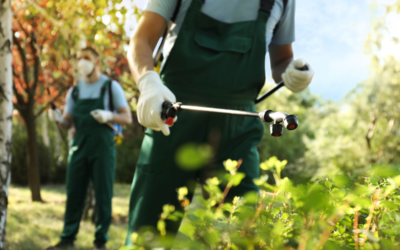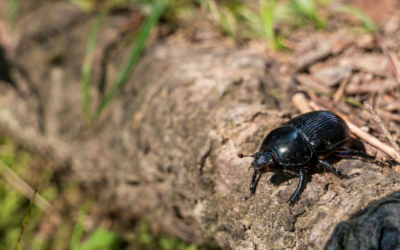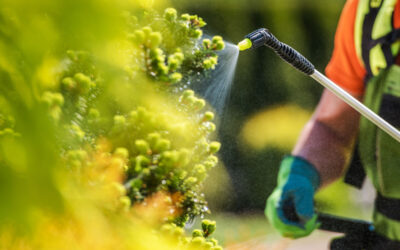With recent heavy snows and record low temperatures, it’s important to remember that misuse of chemical deicing compounds can cause serious damage to your trees and plants. And you might not know how much damage they’ve done until spring when grass, plants and trees are dead and walks and driveways are riddled with pits and cracks.
The culprit? Salt.
Sodium chloride, the same chemical as ordinary table salt is inexpensive, so it’s the main ingredient in cheaper deicing products. While it will melt ice effectively down to about 10° F, it will also damage concrete, metals, soil and plants if not used carefully.
Even if the salt is applied only on walks and driveways, water from melting snow and ice will carry it into the surrounding soil. Plus, salts work into the pores of concrete and mortar causing pitting and flaking known as spalling and weaken the entire slab, promoting cracks to form.
Prevention is Preferable
Once salt is in the soil, it’s very hard to get out, so the best plan is to keep it away in the first place. Washing salt away only encourages it to flow into the landscape or pollute water when it flows into the sewer system or groundwater.
You can minimize the need for deicers by shoveling as soon as snowfall stops and avoiding walking and driving on snow before it’s removed, preventing its compaction and icing up.
Are Other Deicers Better?
If you must use a deicer, sodium chloride isn’t the only product available. Other deicing products include chlorides of calcium, potassium, and magnesium. Some are better than others.
Calcium chloride is a popular deicer because it’s relatively inexpensive and effective to about -15° F. While it’s less hazardous to vegetation than sodium chloride, as it melts ice it causes the surface to become slippery, presenting another hazard. And it can also damage concrete and the roots of plants if it reaches them.
Potassium chloride can cause severe damage to plants if splashed on foliage or allowed to soak into the soil and will damage concrete like sodium and calcium compounds do.
Magnesium chloride has come into widespread use by road and highway crews as a safer deicer. It’s made from limestone and acetic acid (the main ingredient in vinegar) and works differently from other salts in that it prevents snowflakes from sticking to each other. While it has little effect on concrete and vegetation, it’s less commonly available to consumers, is more expensive, and works best at temperatures above +20° F, limiting its effectiveness in many icing situations.
Use Any Deicer with Caution
Careful spot-treating problem areas can be done if necessary but should be a last resort. It’s better to risk a little landscape damage than injuries and lawsuits. If the salt solutions run into planted areas, extra hand watering on warm winter days can help diffuse it and minimize damage. Unfortunately, it will probably be late spring before you know how much damage was done.
If you’re concerned about the health of your soils, the plant health and management experts at Donovan Arborists are ready to help. We offer plant health and management services as well as planting, pruning, and shearing and a complete landscape maintenance package for property in the Denver area. And we’re always happy to give free estimates to homeowners and property managers for any services they may need.




